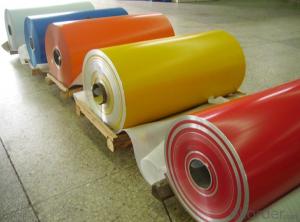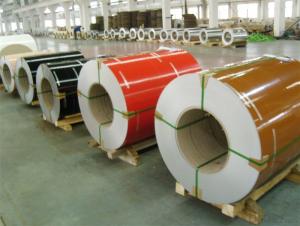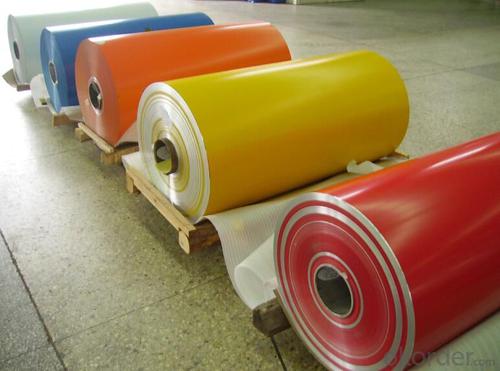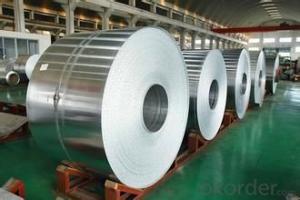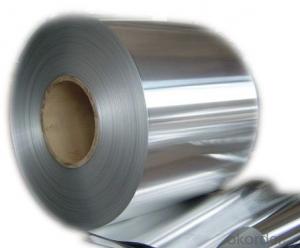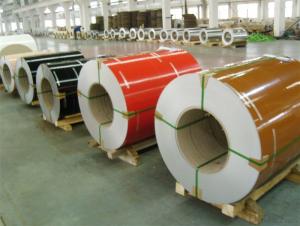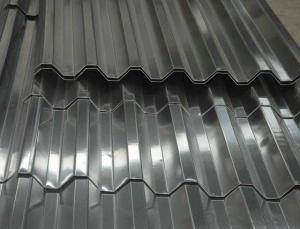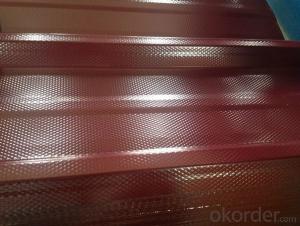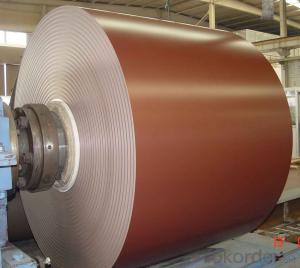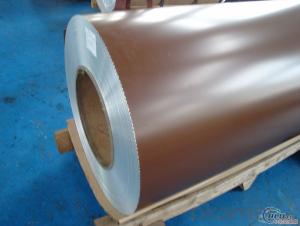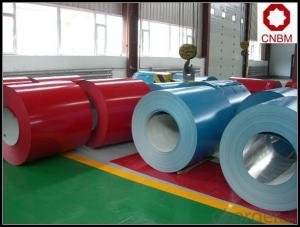Fin Tube Aluminum Coils - Alloy 3003 PVDF Aluminum Coil for Roofing/Ceiling/Gutter/Decoration
- Loading Port:
- Qingdao
- Payment Terms:
- TT OR LC
- Min Order Qty:
- 5 m.t.
- Supply Capability:
- 60000 m.t./month
OKorder Service Pledge
OKorder Financial Service
You Might Also Like
Specification
Alloy 3003 PVDF Aluminium Coil for Roofing/Ceiling/Gutter/Decoration
Specification
Grade
| 1000 Series: 1050 1060 1070 1100 1200 1235 etc. 3000 Series: 3003 3004 3005 3104 3105 3A21 etc. 5000 Series: 5005 5052 5083 5086 5154 5182 5251 5754 etc. 6000 Series: 6061 6063 6082 6A02 etc. 8000 Series: 8006 8011 8079 etc. |
Thickness | 0.05~10mm |
Width | <1600mm< span=""> |
Color | Metallic, Solid, RAL or by customer requirements |
Coating paint: | PVDF(Polyvinylidene Fluoride), PE(Polyester ) |
Coating thickness | as per customer’s request |
Gloss | 10-90%(EN ISO-2813:1994) |
Total coating thick | Polyester18~25micron(EN ISO-2360:1995) PVDF25 ~35micron(EN ISO-2360:1995) |
Coating hardness | 2H |
Protective film | PVC film, Colorless transparent or White-black |
Adhesion | 5B (EN ISO-2409:1994) |
Impact resistance | No cracking and peeling (A.S.T.M D2794-1993) |
Flexibility (T-bend) | 0T- 2T |
Temper | H16, H18, H24, H26, H26 |
Certification | ISO9001:2000, CE, SGS |
Coil's standard diameter | 1100mm |
Inner Diameter | 405mm/505mm |
Coil's standard weight | 2000kgs |
Payment | L/C ,T/T |
Packing
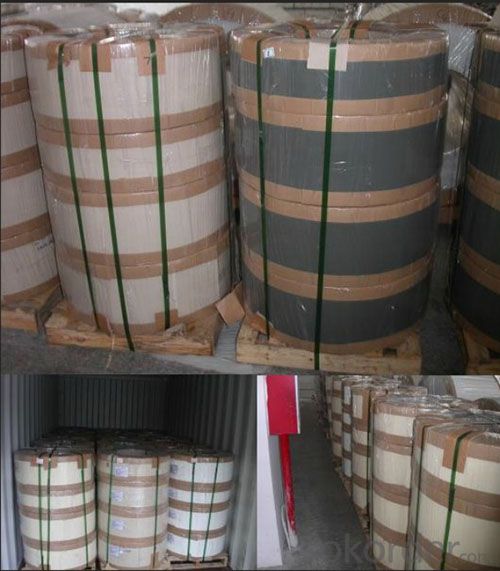
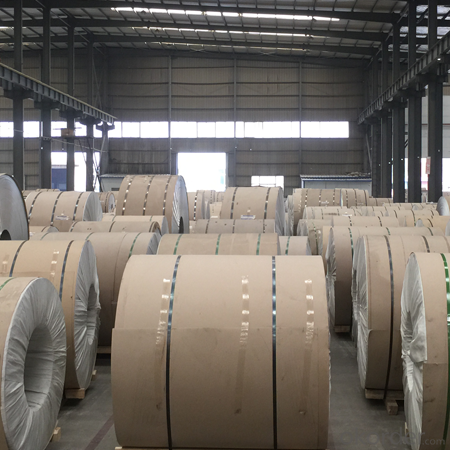
FAQ
Q: How can I request a product sample? A: The samples are free but freight should be collected. Please send sample list and courier account number by email.
Q: How can I request a product catalog? A: The hard copies of catalogs are free but freight should be collected. Please send courier account number by email. You are suggested to request a PDF catalog.
Q: Wha's your payment terms? A: One is T/T 30% before production and 70% against copy of B/L; the other is Irrevocable L/C 100% at sight.
Q: What's your trade terms? A: FOB, CNF(CFR), CIF, EXW.
Q: How long is the quality guarantee? A: All of our products have a period of quality guarantee since time of shipment. Please contact your salesman for more details, as different products enjoy different time of guarantee
- Q: What are the different edge profiles available for aluminum coils?
- There are several different edge profiles available for aluminum coils, each serving a specific purpose or aesthetic preference. Some of the most common edge profiles include: 1. Square Edge: This is the most basic and straightforward edge profile, with sharp corners and a flat surface. It is often used for industrial applications where functionality is prioritized over aesthetics. 2. Round Edge: The round edge profile features a curved surface that eliminates sharp corners. This profile is commonly used in applications where safety is a concern, such as automotive parts or children's playground equipment. 3. Beveled Edge: The beveled edge profile is characterized by a slanted or angled surface. It is often chosen for architectural purposes, as it adds a sleek and modern look to aluminum coils. Additionally, the beveled edge helps to minimize the risk of sharp edges and potential injuries. 4. Full Radius Edge: This edge profile features a smooth, rounded surface that extends along the entire length of the coil. Full radius edges are often preferred for applications where the coil will come into contact with other materials, as they reduce the risk of damage or scratching. 5. Hemmed Edge: A hemmed edge is created by folding the edge of the coil back onto itself, resulting in a double layer of metal. This profile is commonly used in applications where a strong and durable edge is required, such as in the manufacturing of appliances or cabinets. 6. Tapered Edge: The tapered edge profile gradually narrows the width of the coil towards the edge, creating a tapered or sloping appearance. This profile is often chosen for architectural or decorative purposes, as it adds visual interest and can make a space appear more dynamic. It is important to note that the availability of these edge profiles may vary depending on the manufacturer and the intended application of the aluminum coil. Therefore, it is recommended to consult with the supplier or manufacturer to determine the specific edge profiles that are available for a particular coil.
- Q: Is it safe or practical to use an electric iron as a heat source for an aluminum coil?
- <p>Using an electric iron to heat an aluminum coil is not advisable. Electric irons are designed to heat their own plates for ironing clothes, not to transfer heat to other materials like aluminum coils. The high temperature of an iron could damage the coil and potentially cause a fire hazard. Moreover, aluminum has a high thermal conductivity, which means it would dissipate heat quickly, making it inefficient to use an iron for this purpose. Always use heating elements specifically designed for the material you intend to heat.</p>
- Q: Is it possible to construct a portable speaker or speaker docking station using aluminum coils?
- <p>Yes, you can use aluminum coils in the construction of a portable speaker or speaker docking station, but they are not the primary component. Aluminum coils can be used in the speaker's electromagnetic parts, such as in the voice coil of the speaker driver or in the transformer of a docking station. However, the main components of a speaker include a diaphragm, voice coil, magnet, and enclosure, while a docking station would require a connector for the device, an amplifier, and possibly additional circuitry. The aluminum coil's role is to facilitate the magnetic field interaction with the voice coil, which converts electrical signals into sound waves. It's essential to consider the entire design and other necessary components when building such devices.</p>
- Q: Is it safe and effective to use aluminum coils for baking purposes?
- <p>Yes, you can use aluminum coils for baking. Aluminum is a common material used in baking pans and coils due to its excellent heat conduction properties, which allows for even baking. However, it's important to note that some people are concerned about potential health risks associated with aluminum, though these concerns are not universally accepted by the scientific community. Always ensure your aluminum baking coils are food-grade and clean to prevent any contamination.</p>
- Q: Explain the distinctions between cold rolled aluminum coils and hot rolled aluminum coils, focusing on the manufacturing process and resulting properties.
- <p>Cold rolled aluminum coils are produced by rolling aluminum at room temperature, resulting in a smoother surface and tighter dimensional tolerances. They have higher strength and hardness due to cold working. Hot rolled aluminum coils, on the other hand, are rolled at high temperatures, which allows for larger thickness reductions and creates a rougher surface. Hot rolled coils are generally softer and more ductile, with lower strength and hardness compared to cold rolled coils. The choice between the two depends on the specific application requirements for strength, surface finish, and formability.</p>
- Q: My favorite deodorant contains aluminum. It smells really good and it works really well.My mom doesn't like me using it because it contains aluminum.So I got aluminum free. It doesn't smell at all (I can't seem to find fragrant aluminum free deodorant) and it doesn't work as well, for some reason.I want to keep using the one with aluminum, but will it be harmful to me in the future?
- all of my deodorants have aluminum in them. practically every deodorant that works out there has aluminum in it. the only one i know of that DOESN'T have aluminum is Tom's Natural and it doesn't work at ALL. See the aluminum is the key ingredient that stops you from sweating and stops odor, that's why it works so much better than your new aluminum-free one. But then again, use it wisely, because it's linked to alzeimer's, brain cancer, etc.
- Q: How do aluminum coils contribute to the aesthetics of a building?
- The versatility, durability, and aesthetic appeal of aluminum coils significantly enhance the aesthetics of a building. Firstly, aluminum coils offer flexibility in achieving the desired aesthetic by easily shaping and forming them into various architectural designs. Whether it's a sleek modern look or a more traditional design, aluminum coils can be customized to meet specific aesthetic requirements. Additionally, architects and designers have a diverse palette of colors and finishes to choose from when using aluminum coils. This wide range of options allows for endless possibilities in creating visually appealing facades and exteriors that match the overall theme or style of the building. Moreover, aluminum's durability and resistance to corrosion make it an ideal material for architectural applications. By using aluminum coils, the exterior surfaces of a building can maintain their aesthetic appeal for an extended period with minimal maintenance required. This long-lasting beauty makes aluminum coils a cost-effective choice for maintaining the aesthetics of a building. Furthermore, aluminum coils contribute to the energy efficiency of a building. They have excellent thermal conductivity, which effectively dissipates heat and reduces energy consumption for temperature control. This energy-saving feature not only enhances the sustainability of a building but also adds to its overall aesthetic appeal by incorporating environmentally conscious design elements. In conclusion, the use of aluminum coils in a building contributes to its aesthetics through design flexibility, a wide range of color and finish options, durability, and energy efficiency. These qualities allow architects and designers to create visually appealing structures that align with the desired aesthetic vision while ensuring long-lasting beauty and sustainability.
- Q: What are the weight considerations when using aluminum coils?
- When incorporating aluminum coils, there are various factors to consider regarding weight. To begin with, aluminum coils generally possess a lighter weight in comparison to other metals, such as steel. This characteristic makes them a favored choice in industries prioritizing weight reduction, like automotive manufacturing or aerospace applications. The lightweight nature of aluminum coils leads to enhanced fuel efficiency in vehicles and increased payload capacity in airplanes. Furthermore, it is important to take into account the weight of the aluminum coil itself. Depending on the specific usage, the coil's weight may need to fall within certain limits to ensure proper functionality and structural integrity. For instance, in HVAC systems, the weight of the aluminum coil must be appropriate for secure mounting and capable of withstanding vibrations or pressure changes. Moreover, the weight of the aluminum coil can impact transportation and installation. Lighter coils are simpler to handle, transport, and install, thereby reducing the time and effort required for these processes. This advantage can be particularly valuable in construction projects that involve a large quantity of aluminum coils. Additionally, it is crucial to consider the weight-bearing capacity of the structures or equipment that will support or utilize the aluminum coils. The combined weight of the coils, along with any additional components or materials, should not exceed the load capacity of the system to prevent structural failure or safety hazards. Lastly, the weight of aluminum coils can influence cost considerations. Since the price of aluminum is typically based on weight, lighter coils may prove to be more cost-effective when compared to heavier alternatives. However, it is important to strike a balance between weight reduction and meeting the required performance and strength specifications. In conclusion, weight considerations when using aluminum coils encompass various factors, including the overall benefits of weight reduction, the weight of the coil itself, ease of transportation and installation, load-bearing capacity, and cost implications. Taking these considerations into account ensures the successful and efficient utilization of aluminum coils in diverse industries and applications.
- Q: Is it possible to utilize a grinder for cutting aluminum coils?
- <p>Yes, you can use a grinder to cut aluminum coils, but it's important to use the right type of grinder and accessories. An angle grinder with a cutting wheel or a metal cutting disc is suitable for this task. Ensure the grinder is equipped with a safety guard and that you're wearing appropriate safety gear, such as goggles and gloves. Be cautious as aluminum can be slippery and the grinder can generate a lot of heat, which may require frequent cooling to prevent the disc from burning out. It's also advisable to work in a well-ventilated area due to the fine particles produced during cutting.</p>
- Q: Can aluminum coils be used for nameplates and labels?
- Yes, aluminum coils can be used for nameplates and labels. Aluminum is a versatile and durable material that can be easily shaped, engraved, or printed on. It is commonly used for manufacturing nameplates and labels due to its resistance to corrosion, lightweight nature, and ability to withstand harsh environments.
Send your message to us
Fin Tube Aluminum Coils - Alloy 3003 PVDF Aluminum Coil for Roofing/Ceiling/Gutter/Decoration
- Loading Port:
- Qingdao
- Payment Terms:
- TT OR LC
- Min Order Qty:
- 5 m.t.
- Supply Capability:
- 60000 m.t./month
OKorder Service Pledge
OKorder Financial Service
Similar products
Hot products
Hot Searches
Related keywords
